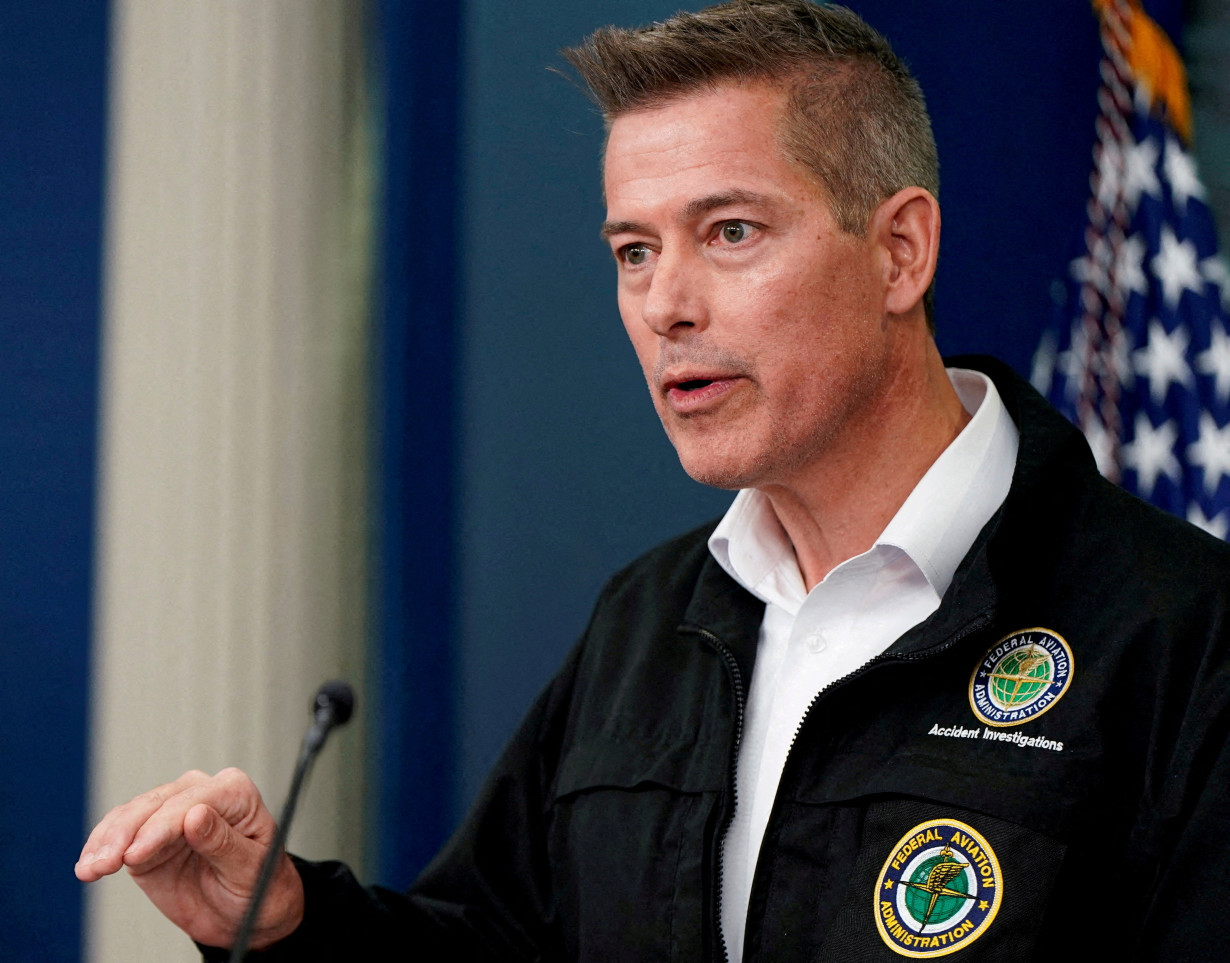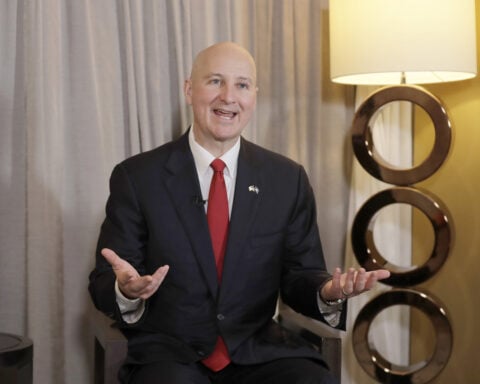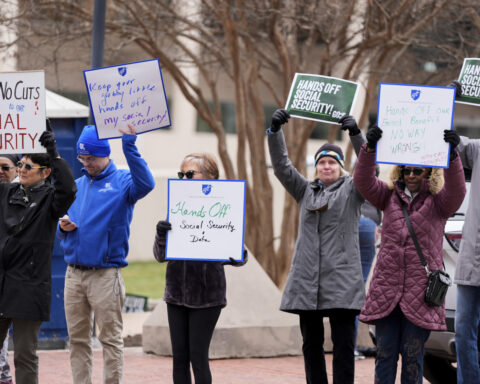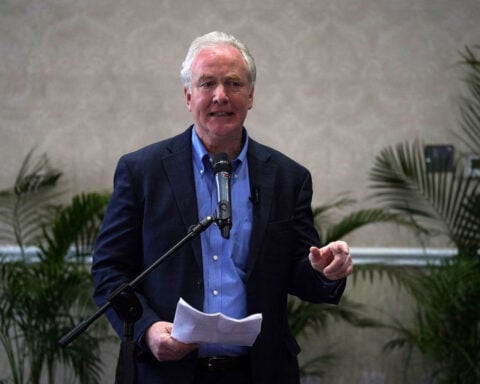By David Shepardson
WASHINGTON (Reuters) -Transportation Secretary Sean Duffy said on Tuesday that he is still in talks with the White House on his plan to upgrade the aging, under-staffed U.S. air traffic control system after a series of high-profile safety incidents raised alarm.
Duffy told reporters that he was working with the White House Office of Management and Budget and the office was reviewing his estimate.
"OMB is pressure-testing those numbers," he said.
Duffy said last month that he planned to ask Congress for tens of billions of dollars for a multi-year effort to revamp Federal Aviation Administration air traffic control infrastructure and boost hiring.
A persistent shortage of controllers has delayed flights and, at many facilities, controllers are working mandatory overtime and six-day weeks.
Duffy did not give a date when he plans to release the plan and did not say how many workers have opted to voluntarily leave the Department of Transportation as part of President Donald Trump's effort to dramatically shrinkthe federal government.
The FAA said last month it planned to hire 2,000 air traffic controller trainees this year. The FAA is about 3,500 air traffic controllers short of targeted staffing levels and has about 10% fewer controllers than it did in 2012.
Duffy wants to buy new radar systems and new air traffic control terminals as well as new runway safety technology so controllers do not need to rely on binoculars to see airplanes and to end the use of floppy disks and other ancient technology.
In February, the U.S. aviation sector called for "robust emergency funding" from Congress for air traffic control technology and staffing after the January 29 collision between an Army helicopter and an American Airlines regional airliner that killed 67 people.
In March 2024, then-president Joe Biden proposed to spend $8 billion over five years to replace or modernize more than 20 aging air traffic control facilities and 377 critical radar systems. A quarter of all FAA facilities are 50 years old or older.
(Reporting by David Shepardson; Editing by Mark Porter and Tomasz Janowski)

 Trump has begun another trade war. Here's a timeline of how we got here
Trump has begun another trade war. Here's a timeline of how we got here
 Canada's leader laments lost friendship with US in town that sheltered stranded Americans after 9/11
Canada's leader laments lost friendship with US in town that sheltered stranded Americans after 9/11
 Chinese EV giant BYD's fourth-quarter profit leaps 73%
Chinese EV giant BYD's fourth-quarter profit leaps 73%
 You're an American in another land? Prepare to talk about the why and how of Trump 2.0
You're an American in another land? Prepare to talk about the why and how of Trump 2.0
 Chalk talk: Star power, top teams and No. 5 seeds headline the women's March Madness Sweet 16
Chalk talk: Star power, top teams and No. 5 seeds headline the women's March Madness Sweet 16
 Purdue returns to Sweet 16 with 76-62 win over McNeese in March Madness
Purdue returns to Sweet 16 with 76-62 win over McNeese in March Madness








